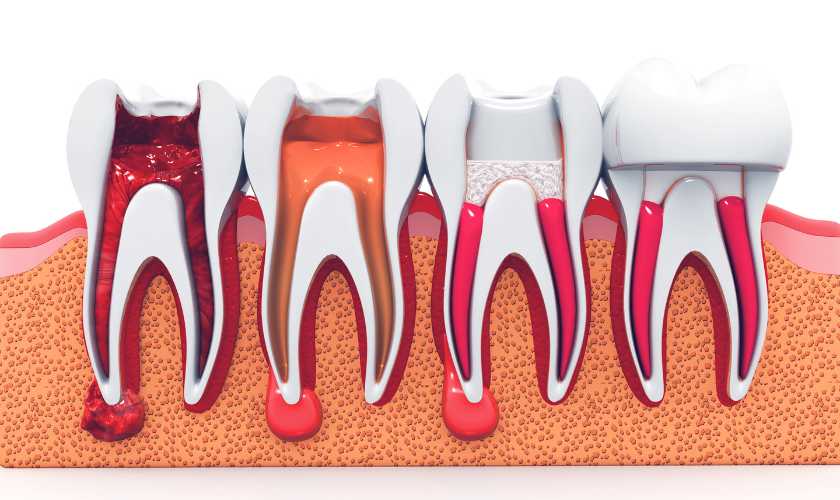
Tips to Recover Quickly from A Root Canal Procedure
Undergoing a root canal procedure can save a severely damaged tooth and alleviate excruciating pain. After the treatment, it’s essential to focus on a speedy recovery. While each individual’s healing process may vary, there are certain steps you can take to facilitate a quicker and smoother recovery. In this blog post, we will explore effective tips on how to recover quickly from a root canal procedure, ensuring a comfortable and successful healing process.
Follow Post-Procedure Care Instructions:
- Take Prescribed Medications:
- Your dentist will likely prescribe painkillers and antibiotics to manage discomfort and prevent infection.
- Take the medications as directed, adhering to the recommended dosage and frequency.
- If you experience any adverse side effects, consult your dentist immediately.
- Maintain Oral Hygiene:
- Proper oral hygiene is crucial for a successful recovery.
- Gently brush your teeth twice a day using a soft-bristled toothbrush, being cautious around the treated tooth.
- Use a mouthwash recommended by your dentist to maintain oral cleanliness and reduce the risk of infection.
- Avoid Chewing on the Treated Tooth:
- To protect the treated tooth and allow it to heal, avoid chewing on it until instructed otherwise by your dentist.
- Opt for softer foods that do not require excessive chewing to minimize stress on the tooth.
Manage Discomfort and Swelling:
- Apply Ice Packs:
- Immediately after the procedure, apply ice packs to the affected area for 15-20 minutes at a time.
- Ice helps reduce swelling and alleviate discomfort.
- Take Over-the-Counter Pain Relievers:
- If the pain persists or intensifies, consult your dentist for appropriate pain relief recommendations.
- Over-the-counter pain relievers such as ibuprofen or acetaminophen can help manage mild to moderate pain.
Stick to a Soft Diet:
- Choose Soft Foods:
- In the initial days following the root canal procedure, stick to a soft diet to avoid placing undue pressure on the treated tooth.
- Opt for foods such as mashed potatoes, soups, yogurt, smoothies, and cooked vegetables.
- Avoid Hot and Cold Foods:
- Sensitivity is common after a root canal procedure.
- Temporarily avoid extremely hot or cold foods and beverages to prevent discomfort.
Take Ample Rest:
- Limit Physical Activities:
- Allow yourself adequate rest and avoid strenuous physical activities for a few days following the procedure.
- Physical exertion can increase discomfort and delay the healing process.
- Elevate Your Head While Sleeping:
- Prop up your head with an extra pillow or elevate the head of your bed slightly.
- This helps reduce swelling and promotes better blood circulation to the treated area.
Attend Follow-Up Appointments:
- Follow-Up with Your Dentist:
- Regularly scheduled follow-up appointments are crucial for monitoring the healing process.
- Attend these appointments as recommended by your dentist to ensure proper recovery.
- Communicate Any Concerns:
- If you experience severe or prolonged pain, swelling, or other worrisome symptoms, promptly communicate them to your dentist.
- Your dentist can provide appropriate guidance and address any concerns you may have.
The Bottom Line
Recovering quickly from a root canal procedure requires proper care, attentiveness, and patience. By following post-procedure care instructions, managing discomfort and swelling, sticking to a soft diet, taking ample rest, and attending follow-up appointments, you can ensure a smooth and speedy recovery. Remember, each person’s recovery process may vary, so it’s important to consult your dentist for personalized advice and guidance throughout your healing journey. With the right approach, you’ll be back to your normal routine and enjoying a healthy, pain-free smile in no time.
